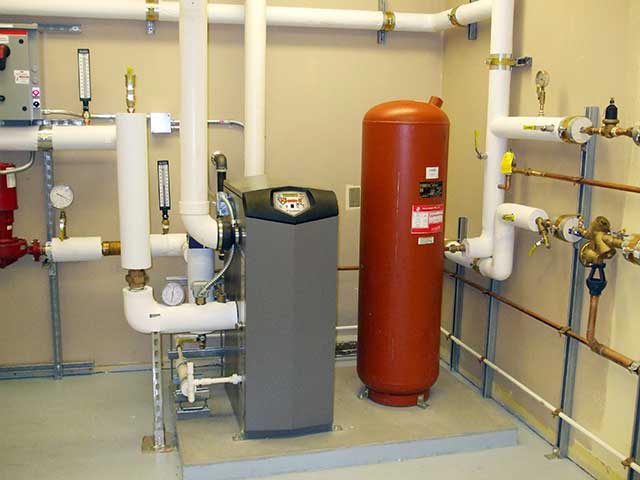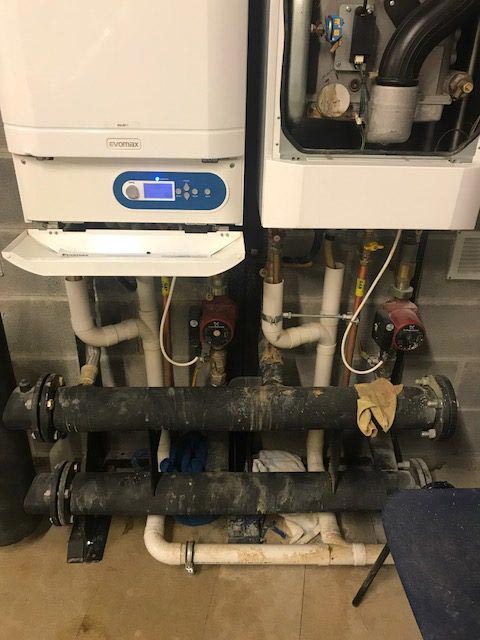Globally, the UK is the third largest boiler market, accounting for 1.7 million units of sales in 2016. The country has more than 26 million boilers installed, with almost all of the units to be the gas condensing type.
Considering its wide use, it is imperative for business owners to keep their boilers performing at optimal level.
A boiler breaking down in the middle of a work day would be, at its worst, a safety hazard to your employees and customers. It would also compromise your company’s operations, possibly affecting your revenue and reputation.
The best way to make sure your boilers continue functioning without disruptions is to schedule and follow regular maintenance.
What Is Commercial Boiler Servicing?
Any unit that has a 70kW power rating and above is classified as a commercial boiler. As such, regular servicing is needed to make sure it’s working effectively and efficiently.
Commercial boiler servicing is, above all, about giving you peace of mind regarding its safety. This makes sure that your boiler is operating properly, while also checking that its seals, gaskets, and heat exchanger does not show any signs of damage.

What Are The Signs That Your Boiler Need Servicing?
Regular servicing makes sure that your property has continuous access to heating and hot water, taking away any worry that it would break down during operating hours.
A common mistake of property owners is being too complacent with a functioning boiler; hence, discrediting the need for regular maintenance.
However, if a slight damage is not detected early on, it could lead to an even bigger problem that could derail operations and/or put people at risk. Servicing could prevent this from happening.
If you are unsure that you need one, here are a few symptoms you need to look for:
- A drop in temperature.
If your property remains cold despite the boiler switched on, it could be a potential boiler problem. The first thing you need to do is check if your radiators and pipes are heating up at the same time and to the same temperature. If the radiators are working properly, then your boiler is the problem.
Another thing you can check is the temperature in other offices (if you share the building). If both or all are having temperature issues, your boiler needs servicing.
- A rise in fuel bills.
An inefficient boiler will use more fuel, giving a company consistent increase in gas bills. Most owners, however, opt to switch gas suppliers without considering it to be a boiler problem at first.
- Noises.
Any previously unheard of noises should not be ignored. Unusual noises include whirring, ticking, or clunking. Take note that a busy commercial setting would drown out these noises—a potential early warning sign that you could be missing.

Ideal Frequency of Boiler Servicing
The average lifespan of a commercial boiler is anywhere between 10 to 15 years. Most owners, however, tend to take boilers for granted especially when it appears to be working properly.
The recommended frequency of commercial boiler servicing is every year. Commercial boilers are especially susceptible to wear and tear, given its heavy-duty use.
Keep in mind that a commercial boiler would not immediately break down without first showing warning signs. Instead of waiting for symptoms to show, be proactive and follow an annual maintenance schedule.
Who Can Do A Commercial Boiler Service?
Working with a professional team commercial plumbers and heating engineers means your boiler system is in good hands. These engineers are fully equipped and trained to carry out detailed checks on UK boilers, giving you a comprehensive report of its safety and any indication of wear and tear.
The Process of a Commercial Boiler Servicing
Whether you have a factory, office, or a warehouse, when your plumber arrives, make sure that you ask for their Gas Safety Accreditations first. They should be able to present you with valid IDs, such as a CSCS plumbing card and a Gas Safety card.
If you are unfamiliar with the process, a servicing usually follows these steps:
Step #1: Visual inspection.
The plumber would check if your boiler, pipework, and flue are all installed correctly. This includes all internal and external components. Proper ventilation, the flame in your boiler, and signs of corrosion and leaks are also checked.
Since you have a commercial boiler, this would also be checked against existing regulations that cover non-domestic establishments. This includes gas safety regulations, building regulations, water by-laws, British and European standards, and the like.
Step #2: Component Check.
Next, your boiler casing will be removed to take a closer look at each internal component. Among the parts that need particular attention include:
- Gas pressure and flow
- Flue and combustion (using an analyser)
- Heat exchanger
- Burner
- Main injector
- Spark probe
- Electrical connections
- Fans
- Seals
- Electrodes
- Condensate trap and pipe
- Safety devices
Afterwards, the inside of the boiler will be cleaned to remove any debris or blockage.
Step #3: Testing.
The next step involves a performance test that would ensure your boiler is working in accordance with The Gas Safety (Installation and Use) Regulations 1998.
If there are any issues discovered (e.g. faults, gas leaks, damaged parts), the plumber will take note and include them in the final report.
Step #4: Reporting.
When the process is done, your plumber will provide you with an extensive report of the process they conducted. Any notable issue will be included, especially if it involves repairs or replacement. You would also be informed if your boiler is in violation of any building and gas safety regulations.
You should not hesitate to ask them any questions and advice. After all, this is your business on the line. Before they leave, you should feel confident in the fact that, if there are any issues, you would know what to do to rectify the situation.
Servicing usually takes half an hour to complete.
Step #5: Signing documents.
When everything is done, they will ask you to sign a report. Look it over and see if all the notes are accurate. Do not forget to request a copy of the report, as most insurance companies need this document for the warranty.

Why Is Commercial Boiler Servicing Important?
Poorly maintained boilers can prove to be unsafe to people and disruptive to the business. A proactive approach to system maintenance would be beneficial to you in a number of ways:
- Safety. Damaged boilers (e.g. gas leaks, not properly ventilated) can cause health hazards to the workplace. Carbon monoxide poisoning, for instance, causes 50 deaths per year in the UK.
- Reduce bills. With an efficient boiler, fuel wastage can be prevented, reducing your monthly energy and fuel bills.
- Identify issues early. Regular maintenance means any issue, however minor, will be reported to you. This is better than identifying an issue when it’s too late or when the heater is especially needed (autumn and winter).
- Save money on repairs. Coming from the previous point, sticking to your maintenance schedule also means any parts that need repair or replacement will be pointed out to you. Proactive maintenance is a lot cheaper than paying for repairs on a reactive basis.
- Maintain warranty validity. Most insurance companies require boilers to be serviced every 12 months. Documentation will be provided after each service, which you can then show to your insurance if or when repairs are needed.
- Legal issues. By law, businesses and landlords are required to give tenants a copy of the building’s Gas Safety Certificate. Among the regulations you need to be aware of include The Health & Safety at Work Act (1974), Workplace (Health, Safety & Welfare) Regulations 1992, and the Gas Safety (Installation and Use) Regulations 1998.
Commercial boilers are amongst the sturdiest equipment on the market. They rarely break down without first giving a few early warning signs. It is then your responsibility to be proactive with system maintenance by scheduling regular boiler servicing. Always work with professionals to make sure your boiler is functioning at its best.


